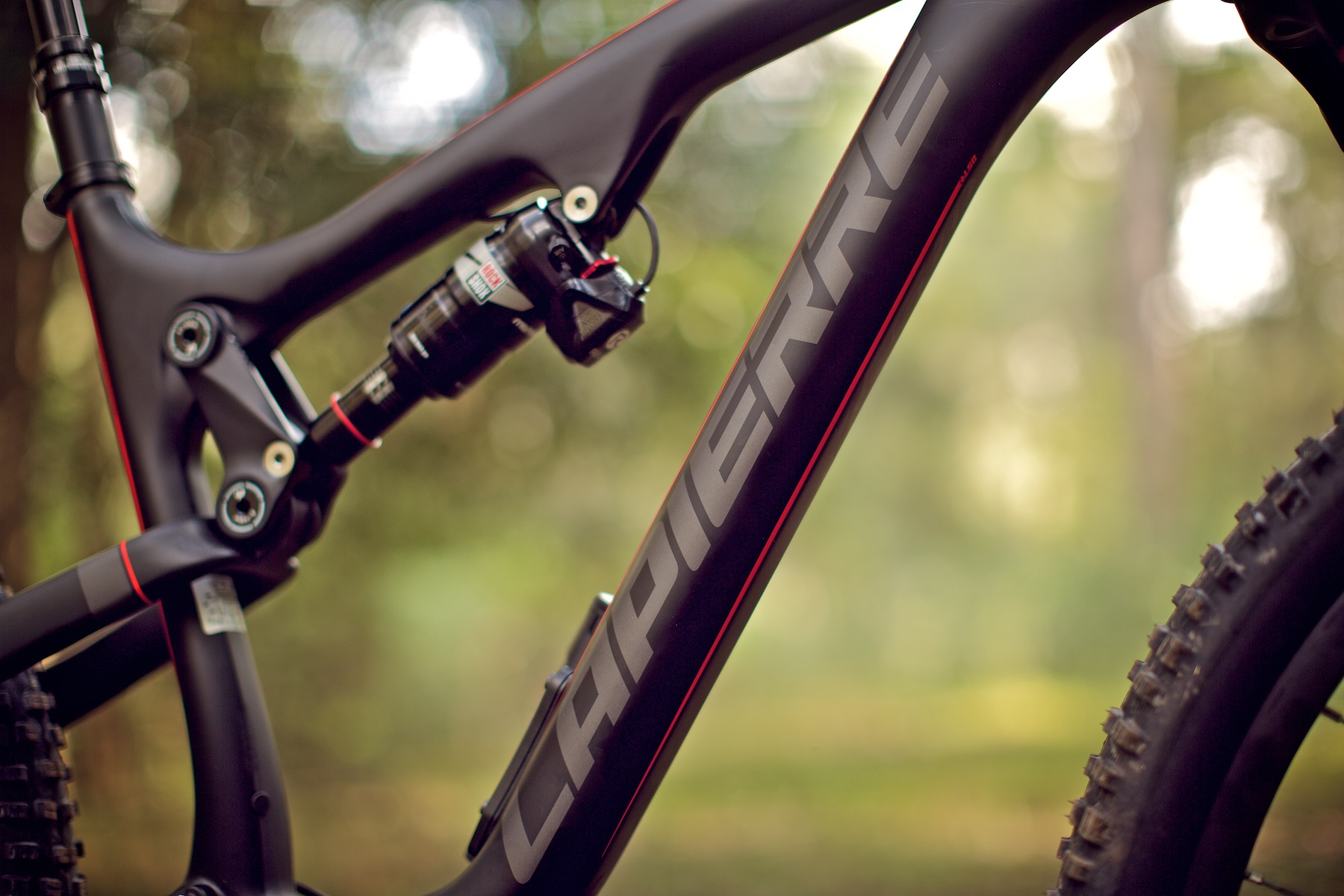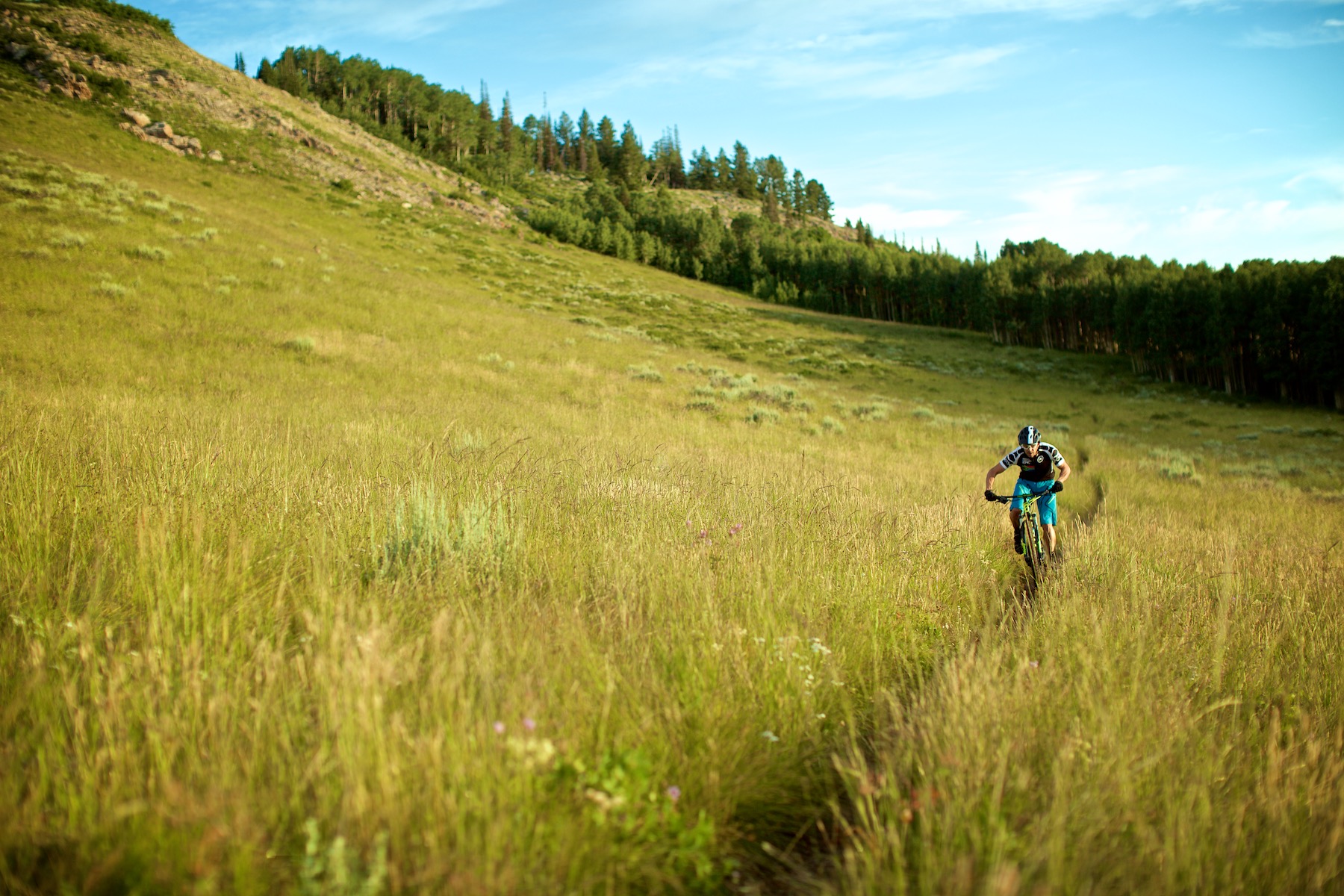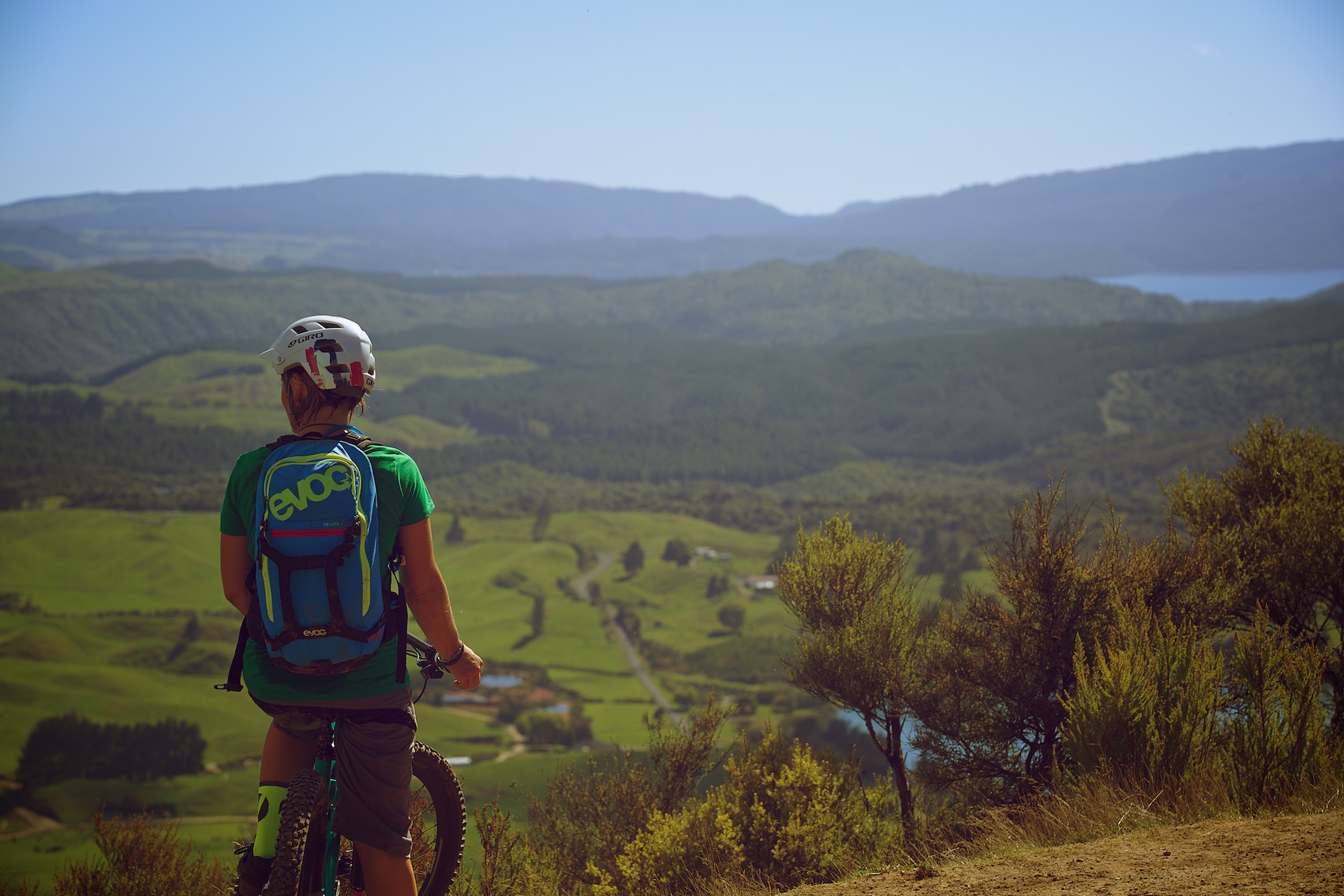Does that anticipation you get waiting for the latest thing to arrive make you feel special? Do you rely on it to give you something to look forward to? Does the feeling disappear as soon as the ‘thing’ arrives, making you want to order something else to recapture that feeling? Of course, it doesn’t help that the marketing cycles for most bike and gear companies have accelerated. It seems like every month there’s a new wheel size, hub standard, line refresh, design change, or item ‘improvement’, all of which make it harder to be satisfied with the equipment you currently own – it’s now ‘out of date’!
Of course, it’s in the various bike companies’ interests to make you feel this way – after all, they want to sell more stuff. But is it in your interest? Does having the latest gear make you a better rider? More importantly, does buying new stuff give you more lasting satisfaction when you ride, or is it just a way of making you feel better in the short term?
Is it possible that spending time lusting after new stuff might actually degrade your riding experience?
Let’s start with why you ride in the first place. I know I’ve touched on this a lot in the past, but it’s a big deal. When pressed, most mountain bikers will tell you that they ride for the freedom, the challenge, the social interaction, the physical activity, the access to the outdoors, and the feeling of deep connection that mountain biking can offer. Very few people will claim to mountain bike because they like looking good in their latest gear, or because it gives them the chance to show off their recent upgrade to their mates. In other words, for most people, mountain biking is about what you do, not what you have. It’s about the process and the experience, not the outcome.
It’s about the doing, not the talking.
So, in theory, as long as your bike is actually capable of doing what you want to ride (and let’s face it, most of us ride bikes that are way more capable than we actually need), you can attain pretty much all of the things that mountain biking offers with what you already have. Or to put it another way, you get most of your psychological benefit from mountain biking by riding, not by thinking about or buying upgrades.
So, if that’s that case, why do we get suckered into the need for new and ‘better’ stuff? Well, we can blame the same brain mechanism that gets us addicted to chemicals (like drugs) or behaviours (like gambling). The ‘mesolimbic dopamine system’ is a part of the midbrain that evolved to reward us for engaging in survival-based behaviours (like eating and sex). The reward comes in the form of increased levels of dopamine in this part of the brain, and dopamine feels really good. In fact, every time you feel good about pretty much anything, it’s because of dopamine. Annoyingly for us, the system hasn’t caught up with the modern world – which means it’s incredibly easy to hack. Hacking the pleasure centre is pretty much what marketing and advertising professionals do – they know that they can activate your pleasure centre by presenting you with something new. Once they’ve convinced you that a new thing is better than an older thing, not only will you get a (temporary) surge of pleasure by buying it, you’ll also no longer get activation of your pleasure centre from the old thing. They also know that this pleasant feeling is really short-lived, hence the need for rapid product cycling (so you’ll keep buying). In other words, if you rely on the ‘new purchase buzz’, no matter how recently you bought something, as soon as a ‘better’ version comes out, the thing you previously lusted after loses its sex appeal and the newer thing becomes sexy (and so on, and so on)…
Worse, if you’re convinced that the thing you own is no longer adequate, it can seriously degrade your riding experience. Instead of focusing on the great experiences of riding, our focus is now on noticing the newer bikes or gear that our friends have, and feeling envious about what they have that we don’t. Have you ever been perfectly happy with your bike, only to start noticing all the things your bike doesn’t do as well (or the scratches on the frame, etc.) as soon as a mate buys the latest upgrade? All of a sudden your beautiful bike isn’t quite as beautiful, and your ride loses its shine…
If we’re not careful, once we’re convinced that our current bike is no longer adequate, we’ll start to rationalise the expense of an upgrade.
We’ll tell ourselves that we’ll be better riders if we buy those new brakes, or convert to the new wheel size. So, rather than practising being a better rider, or spending our money on a skills course, or maintaining our perfectly adequate equipment, we go for the upgrade. And guess what? The upgrade doesn’t really help, but we still tell ourselves that it might. We stop focusing on how to get more out of the riding we do, and the equipment that we have and, instead, shift our focus to the external (and entirely false) idea of “newer gear equals better rider”. In doing so we outsource our satisfaction to something external to us.
It turns out that lasting satisfaction (in pretty much everything, and certainly in mountain biking) comes from focusing on what’s meaningful. And what’s meaningful is the stuff we actually do – like riding regularly, improving our skills, enjoying time with friends, and appreciating nature.
Of course, there’s an argument for balancing good gear with good riding. It’s important to have gear that matches your abilities and the type of trail you want to ride. But, given that most modern bikes are capable of more than we can throw at them, chances are you’re already riding something that’s good enough.
So, to summarise:
1) Your bike and gear is probably already good enough;
2) An external focus on what you don’t have tends to ruin your riding experience;
3) Your brain will try and fool you into thinking that buying stuff is both important and meaningful. This is how advertising works. Don’t trust your brain on this – any ‘satisfaction’ will be short lasting;
4) Long-lasting satisfaction comes from focusing on important stuff like learning to be a better rider, improving your skills, spending time with your friends, and enjoying the moment.
My advice: enjoy the ride. Sure, buy gear if and when needed, and enjoy that, but don’t make it your focus. Remember, while you need a bike, your bike is always secondary to the riding.
About the author:
Dr. Jeremy Adams is a registered psychologist and director of Eclectic Consulting Ltd. He divides his time between mountain biking, working with athletes and other performers, executive coaching, and private practice.
In past lives, Jeremy has been a principal lecturer in sport and performance psychology at a university in London, a senior manager in a large consulting firm in Melbourne, a personal trainer in Paris, and a scuba instructor in Byron Bay. He’s also the author of a textbook on performance in organisational management, a large range of professional and popular articles, and a regular blog about how to be human (www.eclectic-moose.com).
Jeremy is based in Melbourne and can be contacted through his website (www.eclectic-consult.com) or on (03) 9016 0306.





